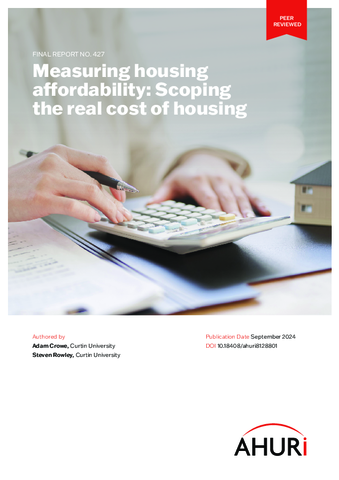Lower-income households make trade-offs to afford their housing costs but most of these are not accounted for in the housing affordability measurements used by policy makers, according to new AHURI research. As a result, housing can appear affordable even though it is of such poor quality it affects people’s health, it is too expensive to heat or cool or it is located far from employment opportunities so that householders have very high commuting costs.
The research reviewed government policies and practices and investigated Australian case studies to better understand the quality, energy, and locational and transportation dimensions of housing affordability. The findings point to the need for a universally applied definition of safe and healthy housing standards across Australia and the need for policy makers to measure households’ required energy expenditure, rather than their actual energy expenditure.
The research case studies also reveal the relationship between housing affordability and locational advantage or disadvantage, that is being close to, or far from, employment, education, health facilities and cultural amenities.
The research stresses that integrating housing, planning, transport and employment policies is critical to mitigating the risks of housing affordability stress and displacement for lower income householders, while offering increased accessibility to key resources and services.
There is a need for programs to encourage private landlords to provide well-located, good quality, affordable rental housing. Furthermore, for low-to-moderate-income householders living in locationally disadvantaged areas, expanding transport assistance schemes can help to reduce transport costs and improve residents’ connection to job-rich areas.


